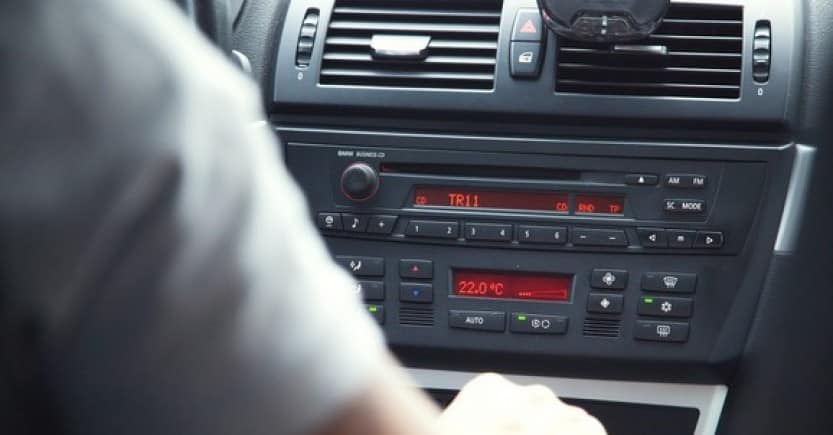Triggers for Tics: Did you Check the Car?
Updated January 2, 2014. If you’ve noticed a symptom change with conditions such as OCD, anxiety, tics, mood swings, or ADHD when riding in vehicles, please let us know so we can share the information.
One of my kids is expecting a baby, and when he and his wife said they had just bought a new car, I worried about toxins from “new car smells.” It inspired me to find this article first posted by ACN Latitudes in 2006. I’ve updated it with more recent studies on interior toxins. Let’s begin with the original article:
I get excited whenever I have a chance to present a program on behalf of ACN. Not just because I can share new information, but because I always pick up wonderful gems from others.
An example: While interacting with a state Tourette syndrome group in Orlando, we started brainstorming the fact that many in the audience said their tics worsen when in a vehicle. “It’s the bright sunlight,” a man suggested. That idea met with many nods of approval, but we prodded further. One woman thought it was the motion of the car that most bothered her. We talked about other possibilities — irritating texture of the upholstery, not wanting to travel to certain locations, exhaust fumes coming in, and so on. I urged them not to jump to quick conclusions, but to think all options through.
Then, one mother threw another puzzle piece out: “My son’s tics remain unchanged when he rides in his dad’s car, but when he’s in my car he’s off the wall. As soon as he gets in — before we even start moving — his tics are much, much worse.” She was desperate for an answer.
We wondered: Could it be he doesn’t like the places his mom drives him to? Was there a family issue? No, that wasn’t it. Then we started talking about differences between the two cars and a “light bulb” went off for her: “My van is brand new,” she exclaimed, “and it still has that new car smell! My husband’s car is older.”
If you think she’s off base, that a new car could not make tics worse, think again. The smell of a new car comes from chemicals, some of which are toxic. A report by the Michigan-based Ecology Center, Toxic at Any Speed, explains that PBDEs (fire retardants) and phthalates (used to soften certain plastics) are at dangerous levels in some new cars. “These groups of chemicals have been linked to birth defects, impaired learning, liver toxicity, premature births and early puberty in laboratory animals, among other serious health problems,” the report states.
What we learned from this mother went beyond avoiding new cars with high levels of chemical outagassing. We learned to dig for answers, to brainstorm together, and we learned the value of sharing. I tell her story wherever I go.
Updated Reports on Car Toxicity
The Ecology Center has updated their report on specific new cars and toxins. They explain:
Research shows that vehicle interiors contain a unique cocktail of hundreds of toxic chemicals that off-gas in small, confined spaces,” Gearhart said. “Since these chemicals are not regulated, consumers have no way of knowing the dangers they face. Our testing is intended to expose those dangers and encourage manufacturers to use safer alternatives.”
Chemicals of primary concern include: bromine (associated with brominated flame retardants, or BFRs); chlorine (indicating the presence of polyvinyl chloride, or PVC and plasticizers); lead; and heavy metals. Such chemicals have been linked to a wide range of health problems such as allergies, birth defects, impaired learning, liver toxicity, and cancer.
The good news
The initial report by the Ecology Center, Toxic at Any Speed, received significant media attention. Some auto companies listened and changed their interior products, improving the health safety of their cars.
The other good news is the kids bought a Honda. Whew! You can check the list yourself here, including the top ten and worst ten vehicles.










Help-the link for the cars causing tics is not working. I’m desperate. My son who is 9 never had a tic. We bought a new car and drive cross country in it with no problems, but 30 days after, as soon as we get in the car he starts having what we believe are facial tics.
Please, any info you can send?
Susan
Suzeypurple@gmail.com
Susan, I’m sorry the link is not working anymore and for the delay in responding. Their website has been revised and we are trying to locate the information. In any event, for your situation with your son having tics when in the new car, have you noticed them at other times as well? Please give us more information, OK? And is it when only in the car (rather than other situations.) Further, are the tics only noticeable when in the new car, not other vehicles?
What model car did you purchase if you don’t mind telling us?
We hope we can find some answers to help your son in general, what would make him so sensitive. Sheila